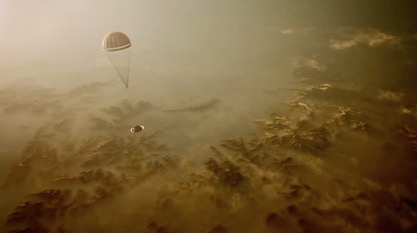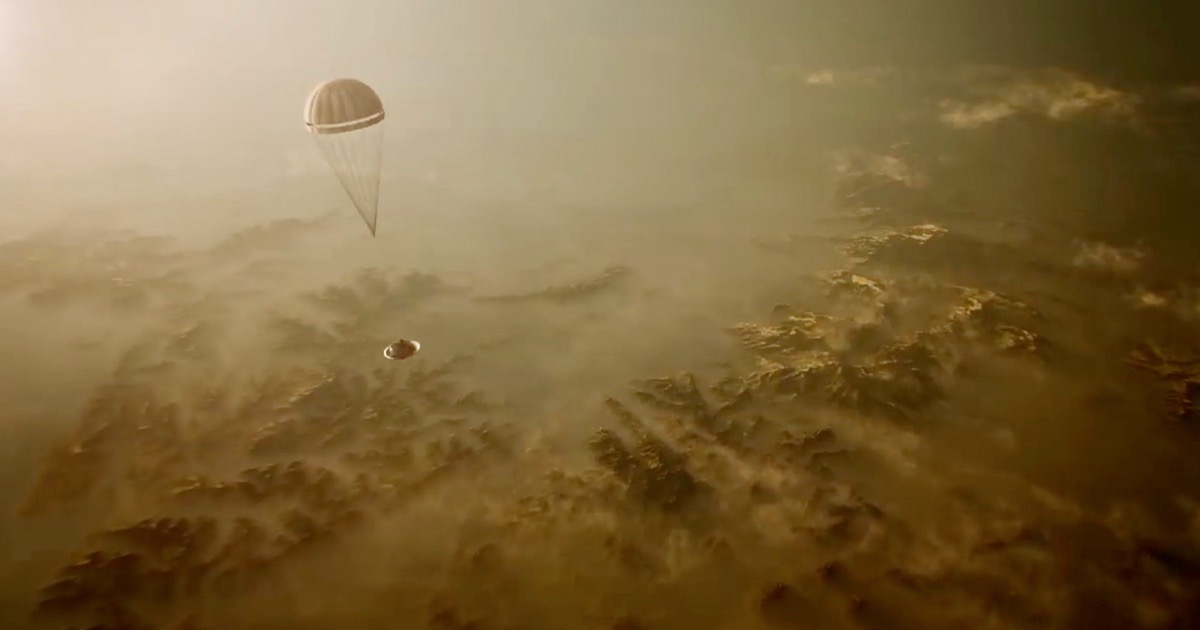 Physics, Earth & Space
Physics, Earth & Space
Cosmos Franchise Loses Viewers, While Pumping for Materialism


On a new episode of ID the Future, philosopher Jay Richards talks with science historian Michael Keas about the new Cosmos series on Fox and the National Geographic Channel. They note that the importance of this season and its predecessors (2014 and, the original with Carl Sagan, in 1980) lay not only in the viewers who saw it at home but in the school kids who watched because their teachers brought the program into the classroom. As Jay recalls, he and others at Discovery Institute can trace their interest in astronomy and related sciences to the spell cast by Sagan in their youth.
A Victim of Coronavirus
Dr. Richards and Dr. Keas note that teachers justify the program’s classroom use by pointing out what an “event” it was on TV. The 2014 iteration was seen, each night it aired, by 3 to 4 million people in the U.S., or more. Well, very possibly you could count the current season, Cosmos 3.0 (“Possible Worlds”), as a victim of the coronavirus. Perhaps partly because the world is preoccupied by COVID-19, a lot fewer people so far have seen the new Cosmos. Rather than in the several millions, each of these episodes has been seen by more like a half a million or fewer. There are likely other reasons, too, having to do with host Neil deGrasse Tyson, that the series didn’t get the major push its immediate predecessor did.
Materialist Mythmaking
These speculations aside, as Mike Keas discusses, the series itself is marked by a great deal of…well, speculation in the service of materialist mythmaking. “Imaginative storytelling,” as Professor Keas puts it. In seeking to explain the origin of life or the origin of mind, “It’s very impressionistic storytelling that Tyson is engaged in and it leaves all the important details out of an actual pathway through which mindless matter could bring about life and eventually intelligence.”
The nature of this “science” would almost certainly go unrecognized, in any critical way, by school-age viewers, or by most adults, for that matter. Keas and Richards review some of the details that Tyson leaves out. Keas is the author of Unbelievable: 7 Myths About the History and Future of Science and Religion, and Richards is the co-author of The Privileged Planet: How Our Place in the Cosmos Is Designed for Discovery, now out in paperback with a new Foreword, among other books. They are terrific together in conversation. Download the podcast or listen to it here.
Editor’s note: Find further reviews and commentary on the third season of Cosmos, “Possible Worlds,” here:
- “Neil deGrasse Tyson and Cosmos Peddle the Myth that Copernicus Demoted Earth”
- “Another Cosmos Episode, Another Sermon from Pastor Tyson”
- “Medicine, Religion, and Cosmos — Was Andrew Cuomo Wrong to Invoke God?”
- “Cosmos Episode 6 — That’s Entertainment! (But Is It Science?)”
- “The Biggest Myth So Far in Cosmos 3.0 — Baruch Spinoza as Science Hero”
- “New Cosmos Episodes: Only Part of the Story”
- “Counterprogramming for Cosmos 3.0: Two New Videos from Science Historian Mike Keas”
- “Cosmos 3.0 Revisits Themes of the Past, with Familiar Historical Mythmaking”
- “Cosmos 3.0 with Neil deGrasse Tyson Arrives Tonight at 8 PM, Somewhat Dented”
Image: Screenshot from the trailer for Cosmos 3.0, “Possible Worlds.”
